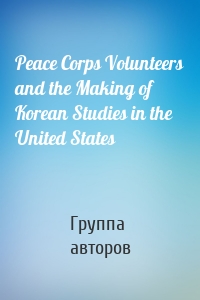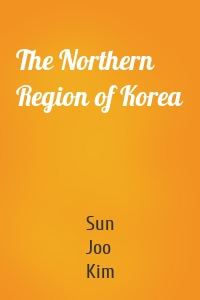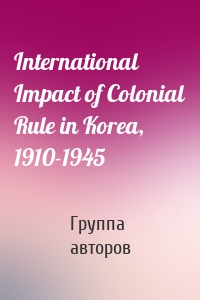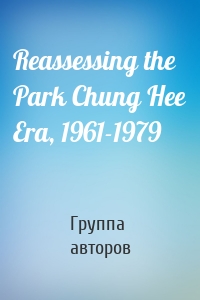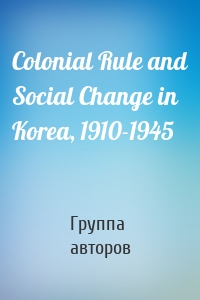Серия "Center For Korea Studies Publications"
9 кн.Скачать лучшие книги серии Center For Korea Studies Publications - автор Группа авторов в формате fb2 или читать онлайн, бесплатно и без регистрации. Читаемые, полные версии книг, без сокращений - на сайте Knigism.online. Скачать книги полностью в количестве 9 шт.
Peace Corps Volunteers and the Maki...
From 1966 through 1981 the Peace Corps sent more than two thousand volunteers to South Korea, to teach English and provide healthcare. A small yet significant number of them returned to the United States and entered academia, forming the core of a second wave of Korean studies scholars. How did their experiences in an impoverished nation still recovering from war influence their intellectual orientation and choice of study—and Korean studies itself?In this volume, former volunteers who...
| Автор | Группа авторов |
South Korea's Education Exodus
South Korea's Education Exodus analyzes Early Study Abroad in relation to the neoliberalization of South Korean education and labor. With chapters based on demographic and survey data, discourse analysis, and ethnography in destinations such as Canada, New Zealand, Singapore, and the United States, the book considers the complex motivations that spur families of pre-college youth to embark on often arduous and expensive journeys. In addition to examining various forms and locations of study...
| Автор | Группа авторов |
Spaces of Possibility
Spaces of Possibility, which arose from a 2012 conference held at the University of Washington�s Simpson Center for the Humanities, engages with spaces in, between, and beyond the national borders of Japan and Korea. Some of these spaces involve the ambiguous longings and aesthetic refigurings of the past in the present, the social possibilities that emerge out of the seemingly impossible new spaces of development, the opportunities of genre, and spaces of new ethical subjectivities....
| Автор | Группа авторов |
The Northern Region of Korea
The residents of the three northern provinces of Korea have long had cultural and linguistic characteristics that have marked them as distinct from their brethren in the central area near the capital and in the southern provinces. The making and legitimating of centralized Korean nation-states over the centuries, however, have marginalized the northern region and its distinct subjectivities.Contributors to this book address the problem of amnesia regarding this distinct subjectivity of the...
| Автор | Sun Joo Kim |
International Impact of Colonial Ru...
In recent years, discussion of the colonial period in Korea has centered mostly on the degree of exploitation or development that took place domestically, while international aspects have been relatively neglected. Colonial discourse, such as characterization of Korea as a “hermit nation,” was promulgated around the world by Japan and haunts us today. The colonization of Korea also transformed Japan and has had long-term consequences for post–World War II Northeast...
| Автор | Группа авторов |
Reassessing the Park Chung Hee Era,...
The Republic of Korea achieved a double revolution in the second half of the twentieth century. In just over three decades, South Korea transformed itself from an underdeveloped, agrarian country into an affluent, industrialized one. At the same time, democracy replaced a long series of military authoritarian regimes. These historic changes began under President Park Chung Hee, who seized power through a military coup in 1961 and ruled South Korea until his assassination on October 26, 1979....
| Автор | Группа авторов |
Beyond Death
Suicide and martyrdom are closely intertwined with Korean social and political processes. In this first book-length study of the evolving ideals of honorable death and martyrdom from the Chosŏn Dynasty (1392–1910) to contemporary South Korea, interdisciplinary essays explore the changing ways in which Korean historical agents have considered what constitutes a sociopolitically meaningful death and how the surviving community should remember such events.Among the topics covered are the...
| Автор | Группа авторов |
Colonial Rule and Social Change in...
Colonial Rule and Social Change in Korea 1910-1945 highlights the complex interaction between indigenous activity and colonial governance, emphasizing how Japanese rule adapted to Korean and missionary initiatives, as well as how Koreans found space within the colonial system to show agency. Topics covered range from economic development and national identity to education and family; from peasant uprisings and thought conversion to a comparison of missionary and colonial leprosariums. These...
| Автор | Группа авторов |
An Affair with Korea
In 1966 Vincent S. R. Brant lived in Sokp�o, a poor and isolated South Korean fishing village on the coast of the Yellow Sea, carrying out social anthropological research. At that time, the only way to reach Sokp�o, other than by boat, was a two hour walk along foot paths. This memoir of his experiences in a village with no electricity, running water, or telephone shows Brandt�s attempts to adapt to a traditional, preindustrial existence in a small, almost...
| Автор | Vincent S. R. Brandt |


